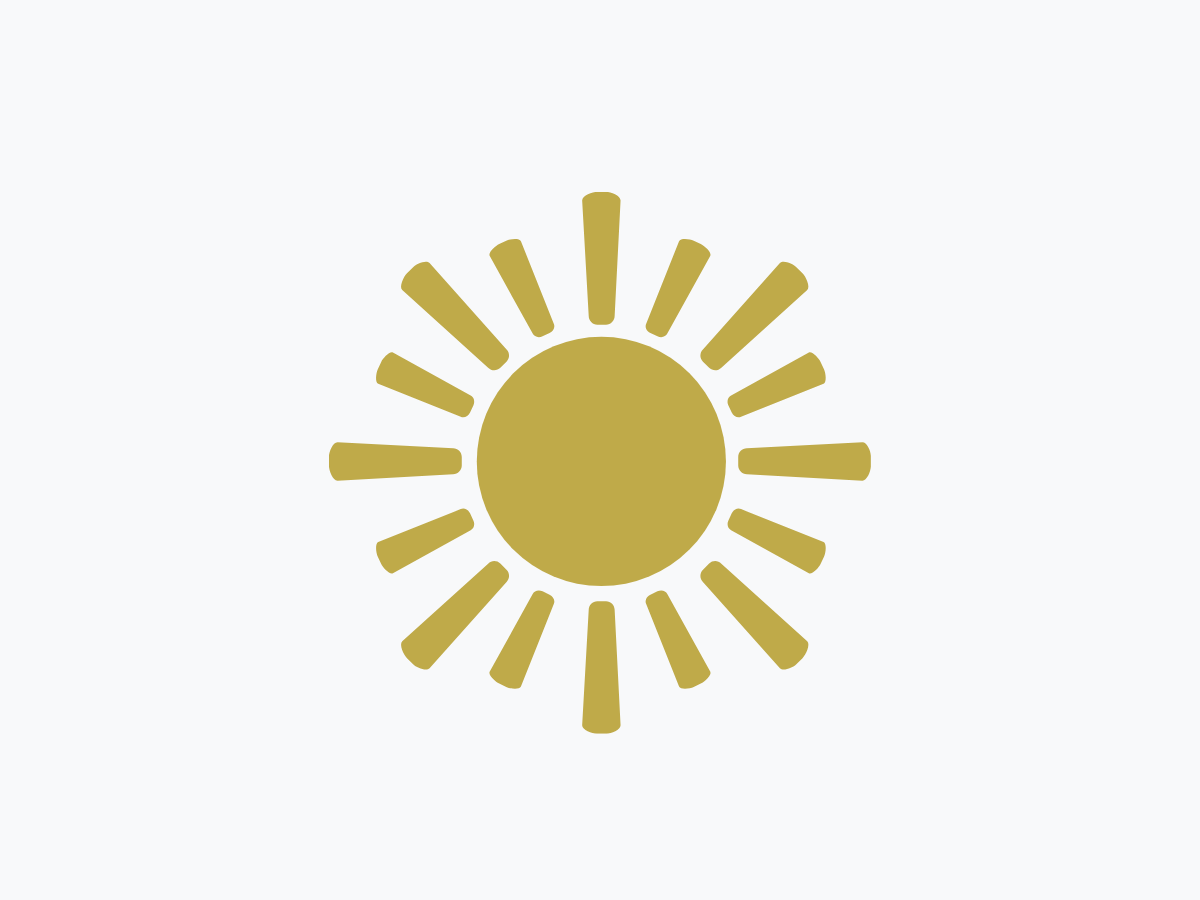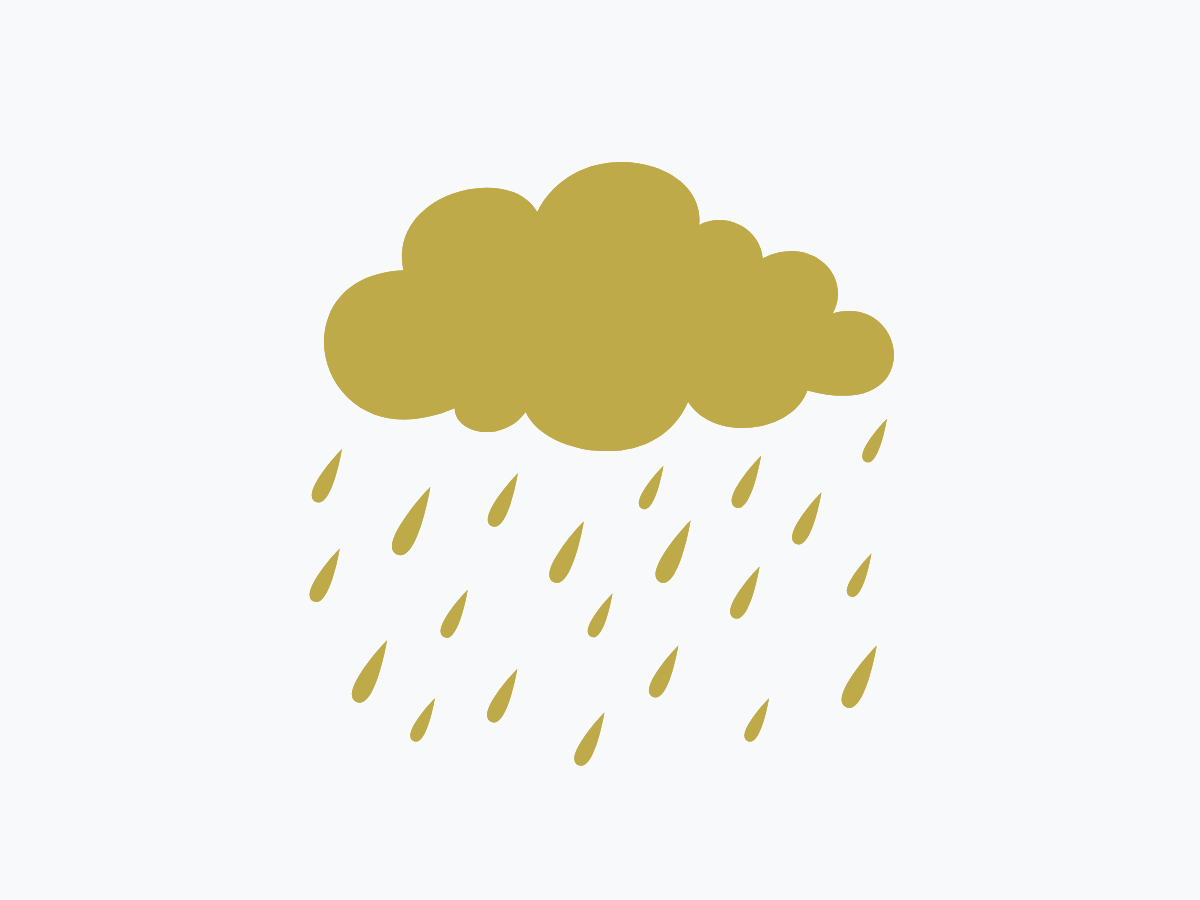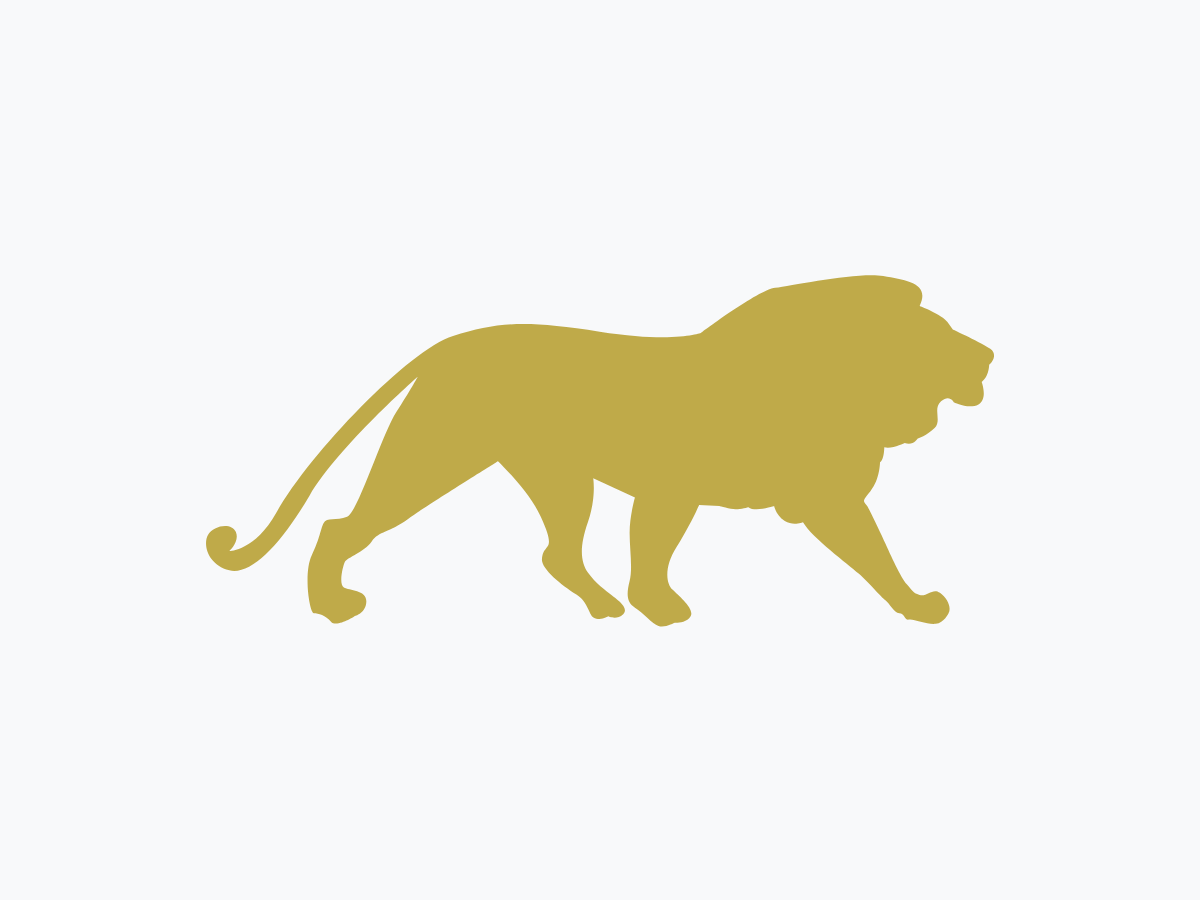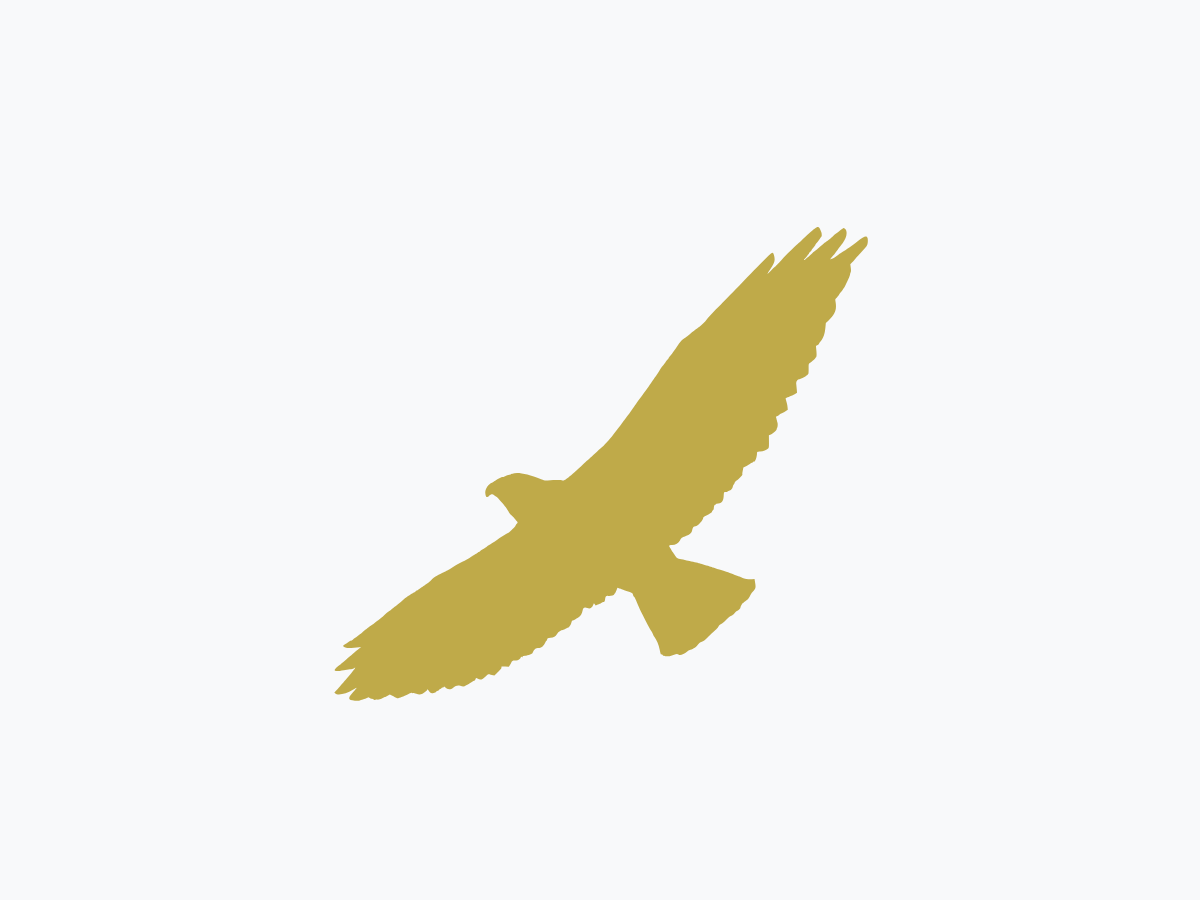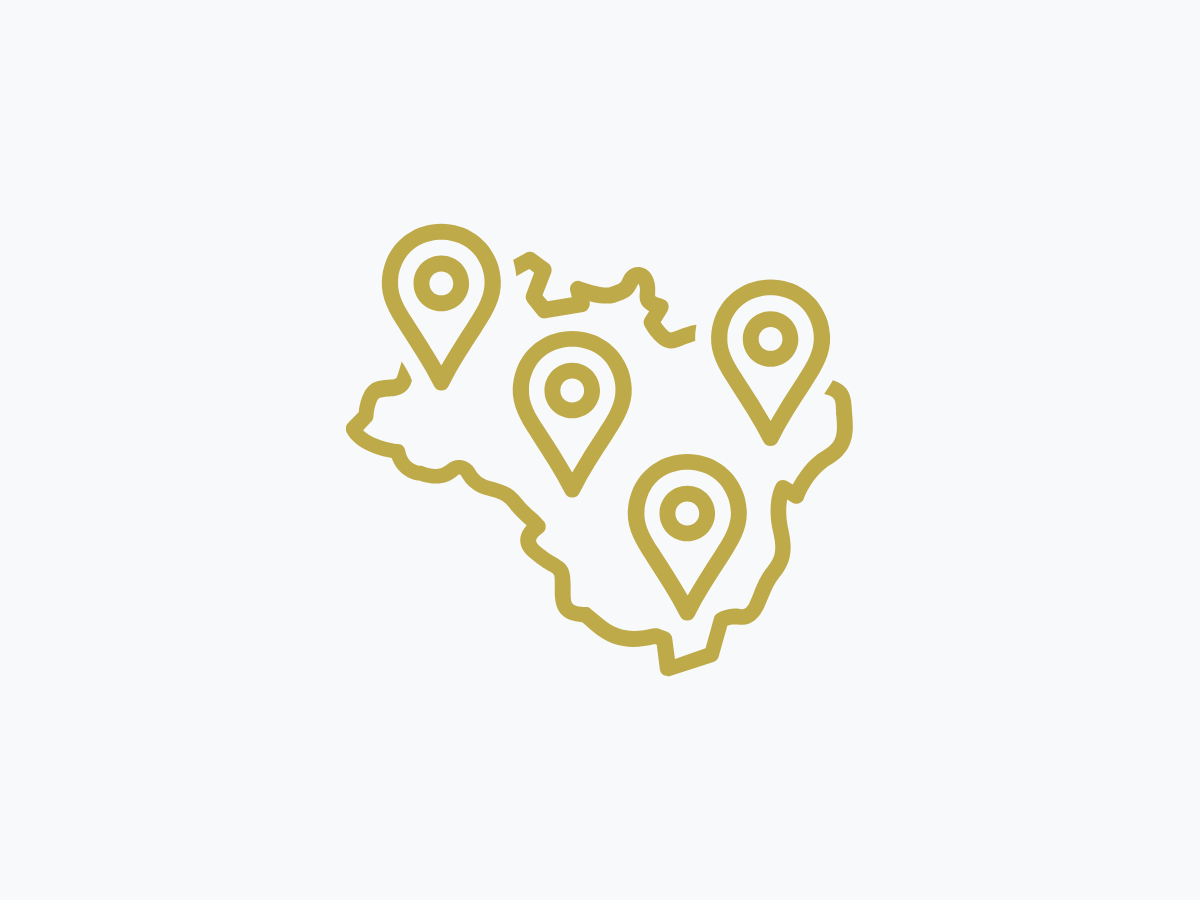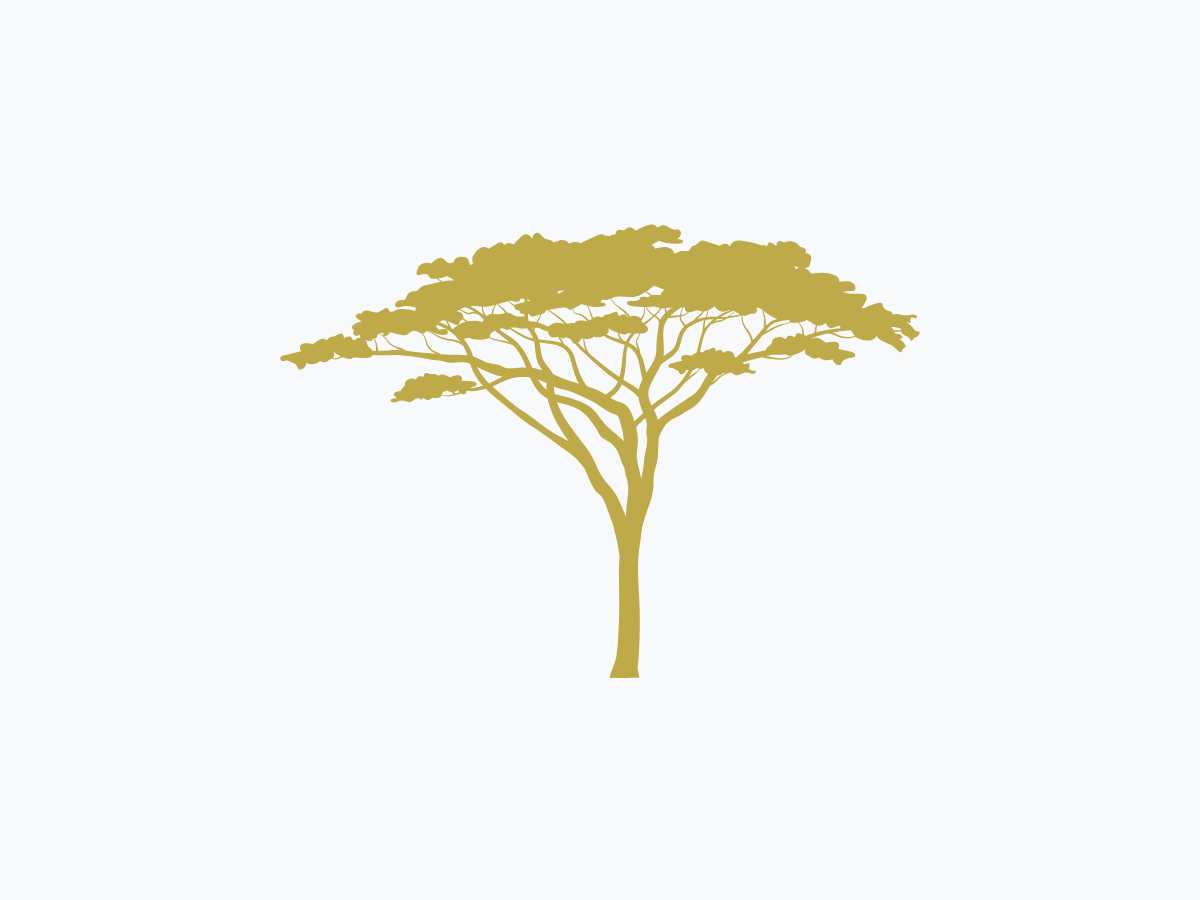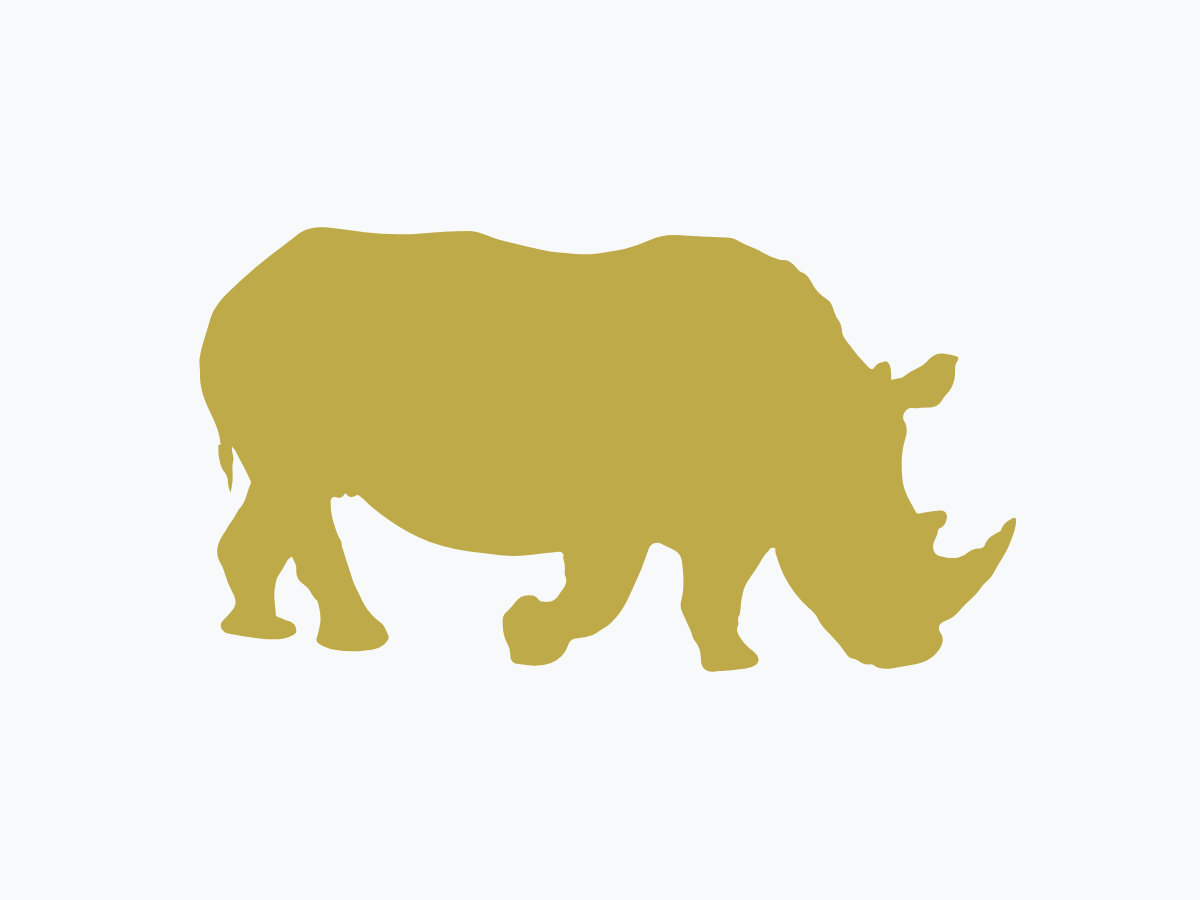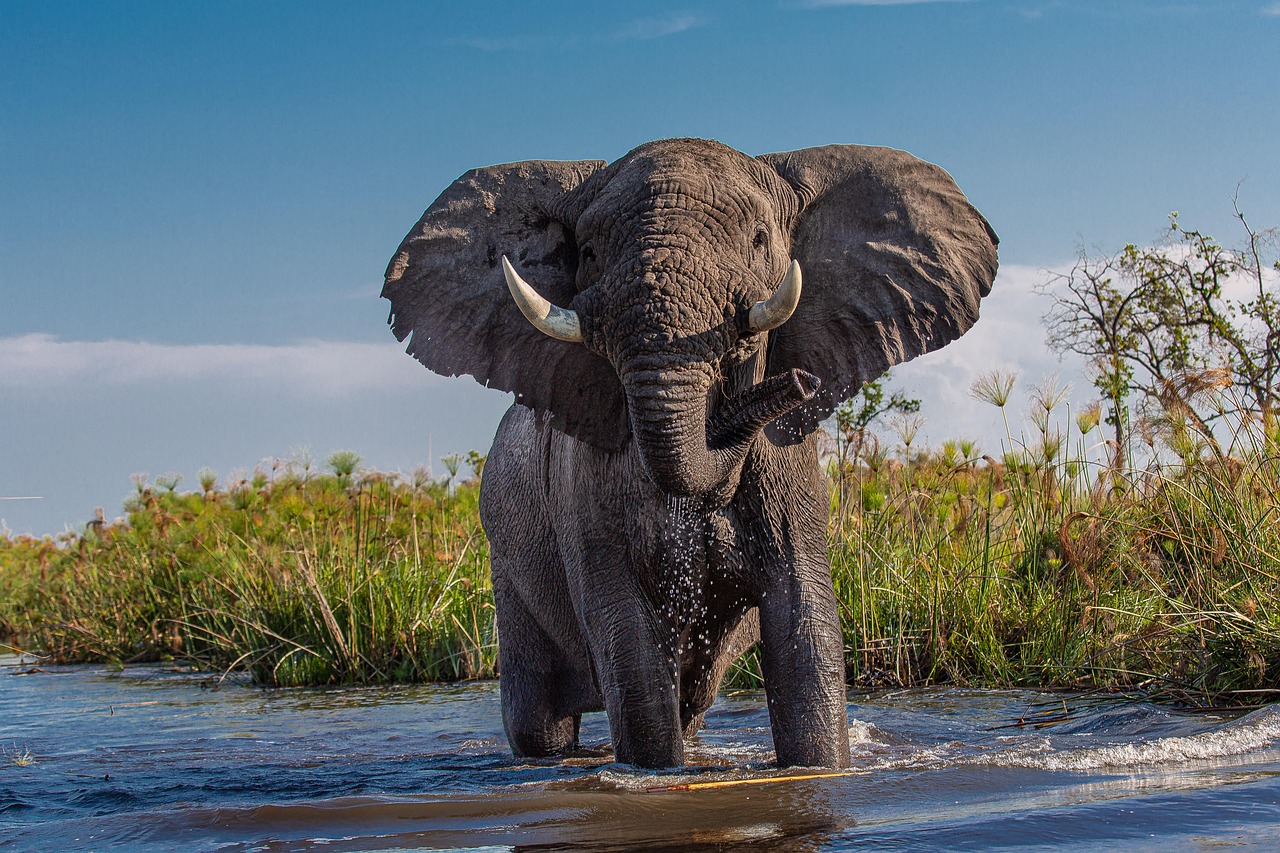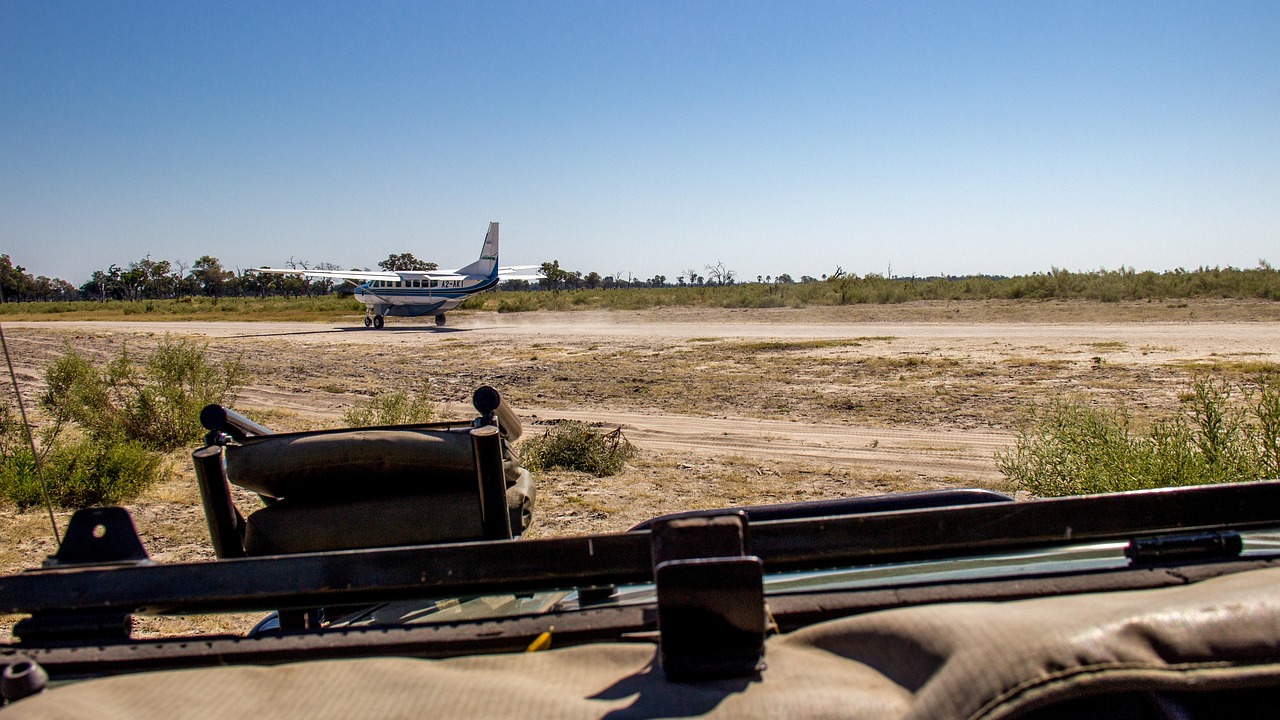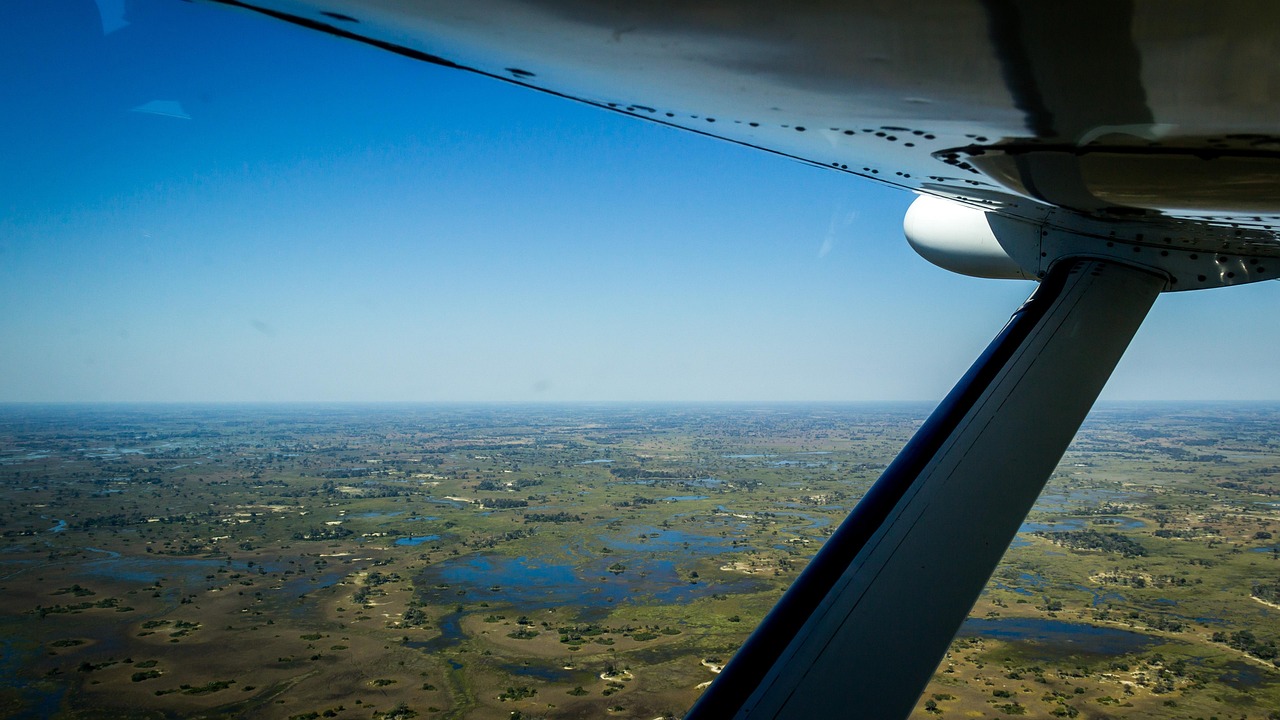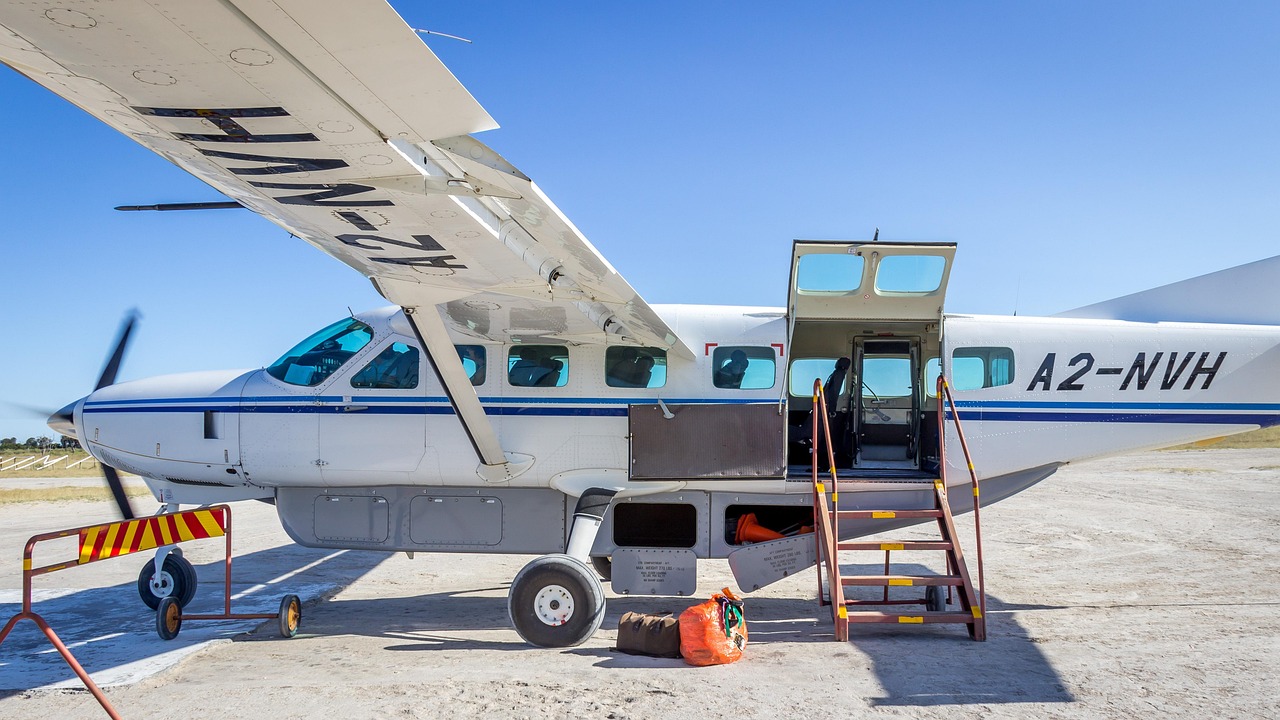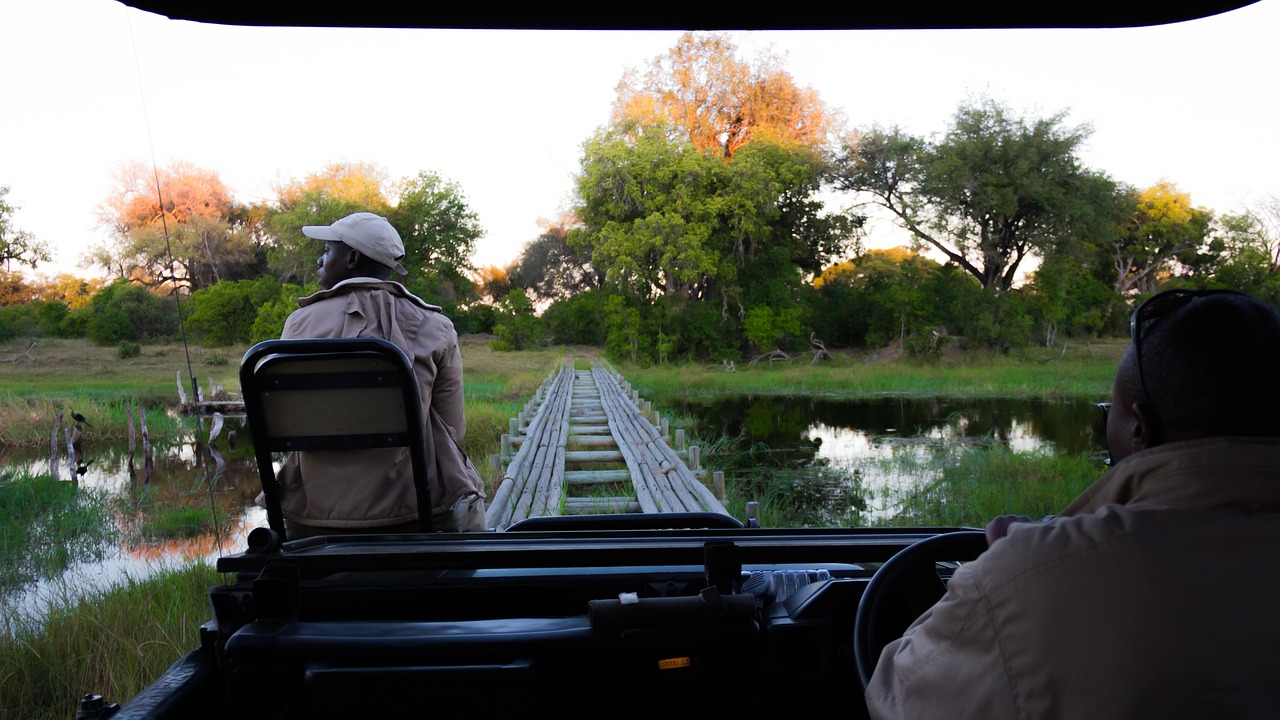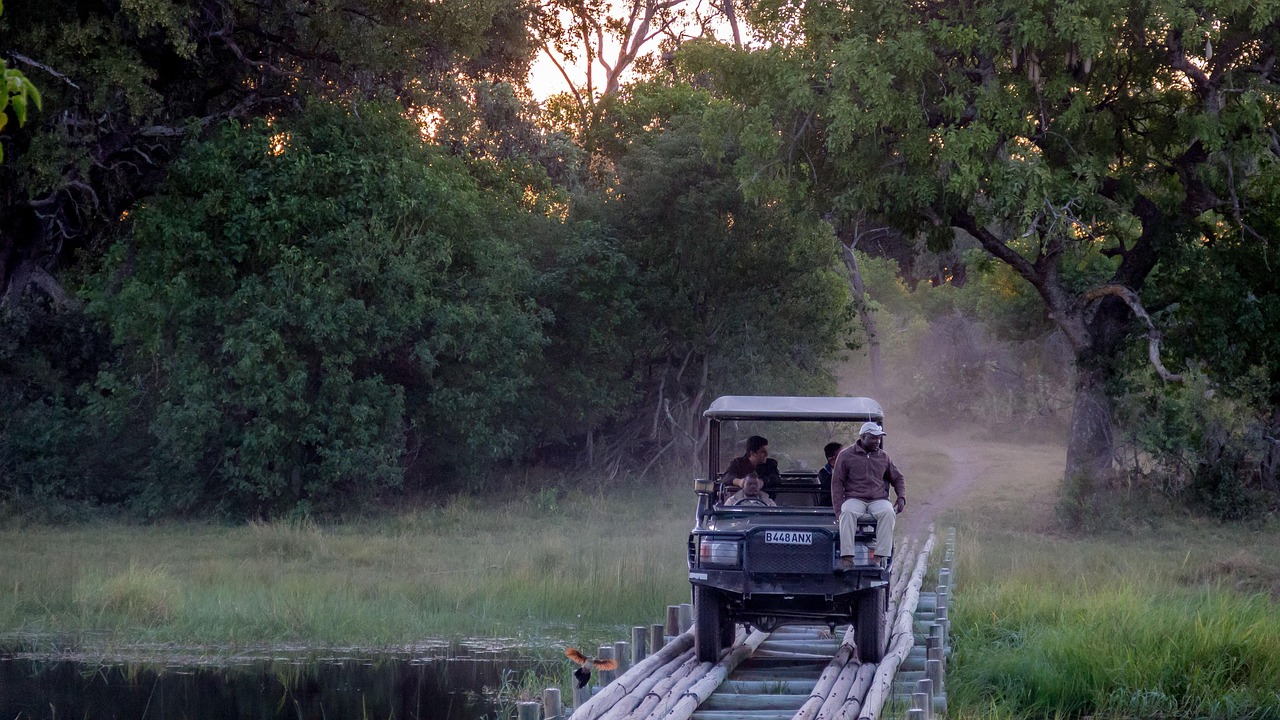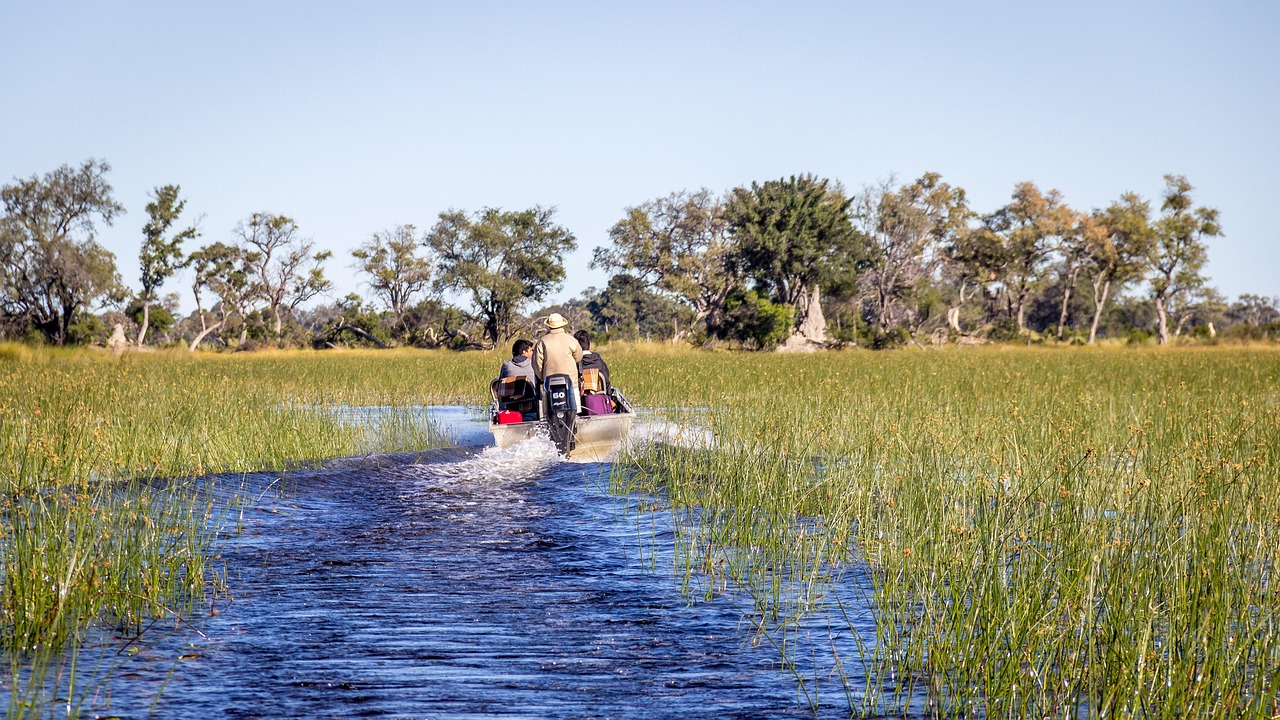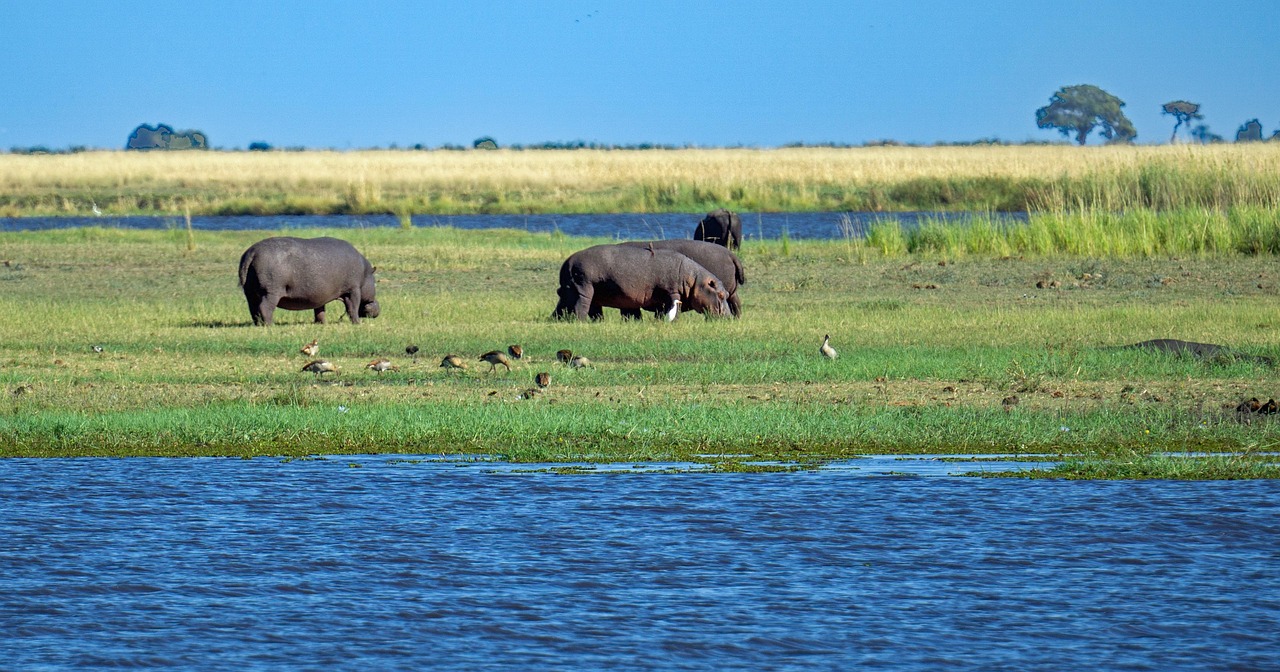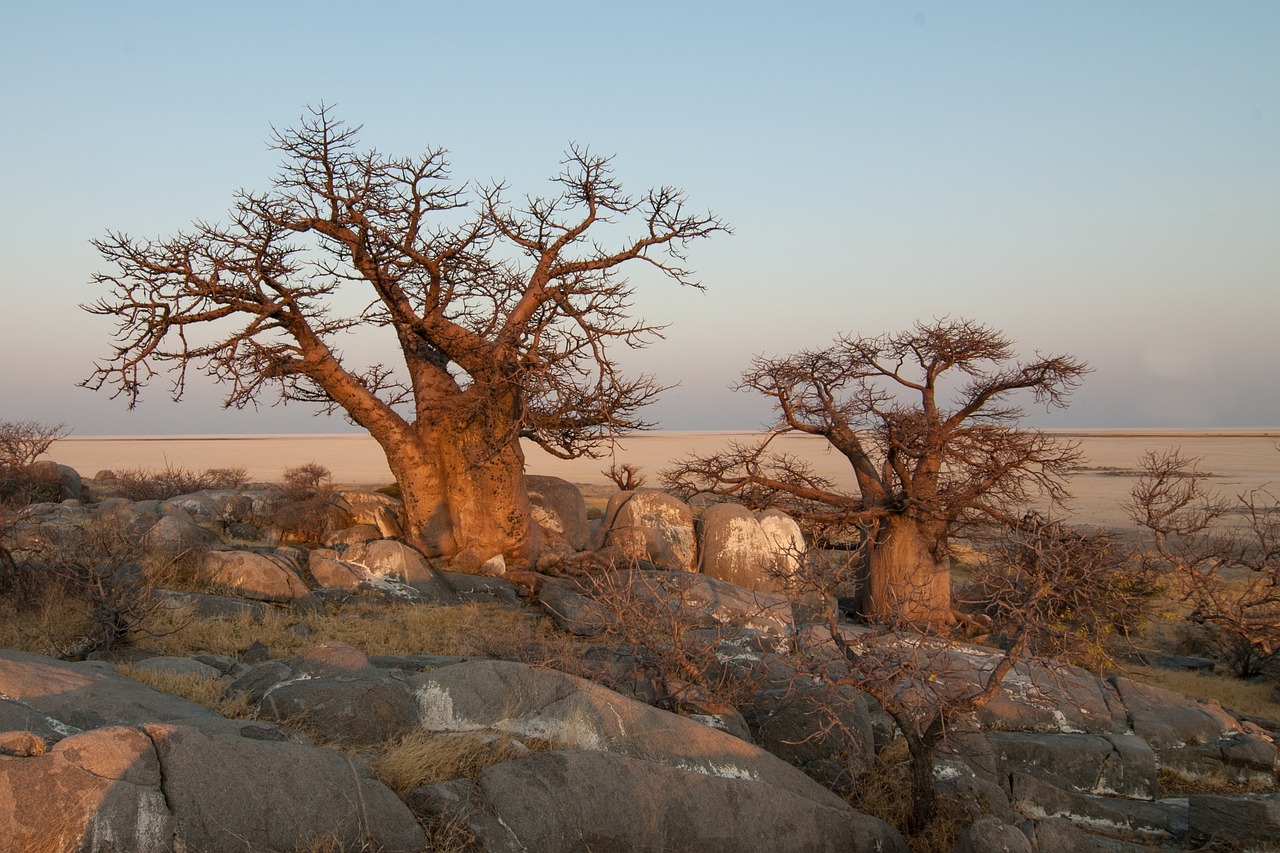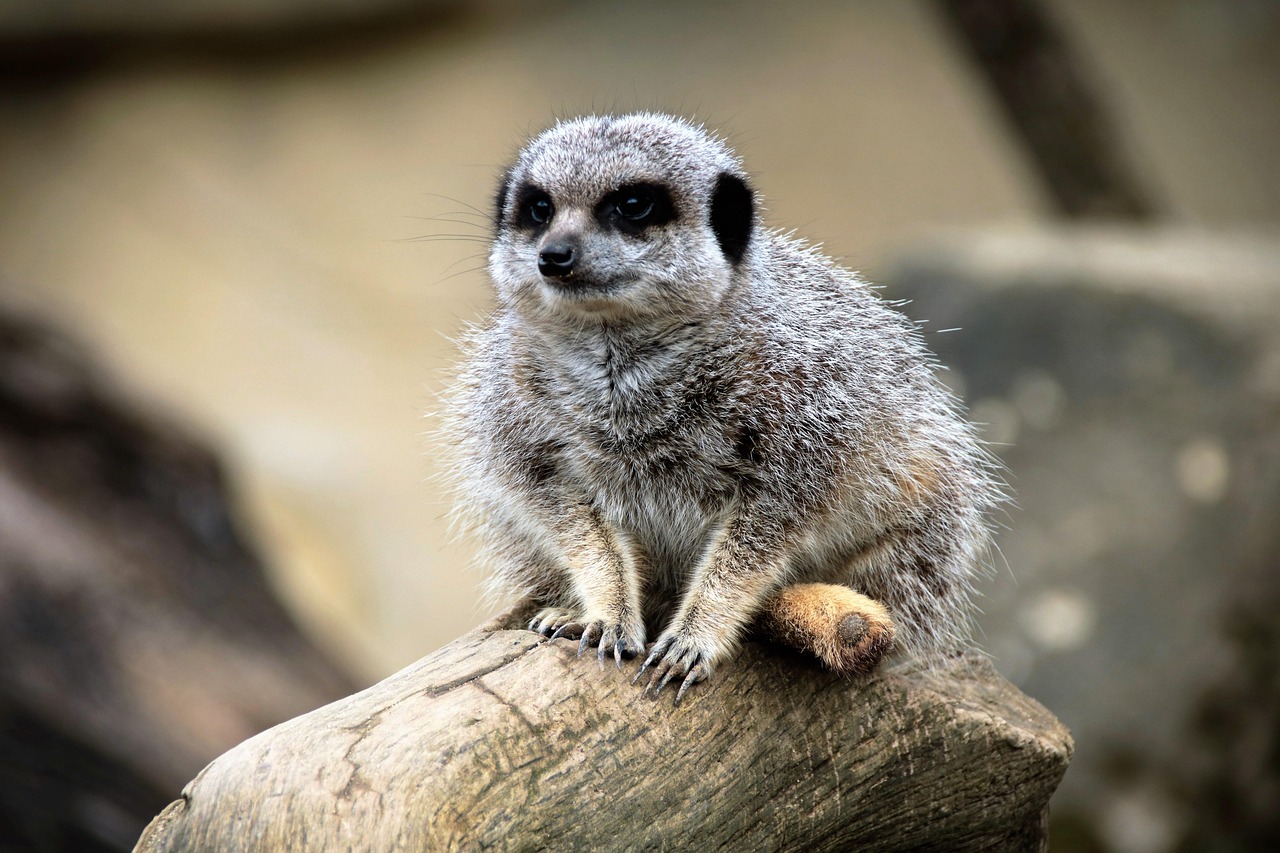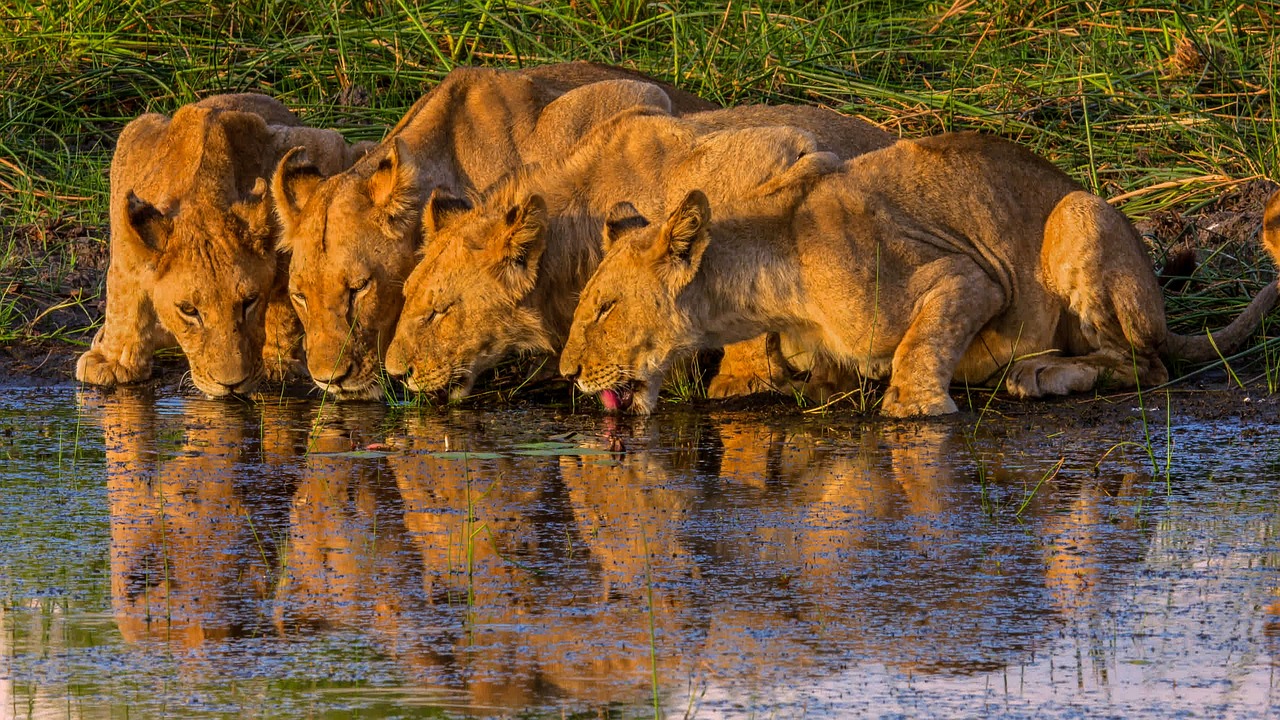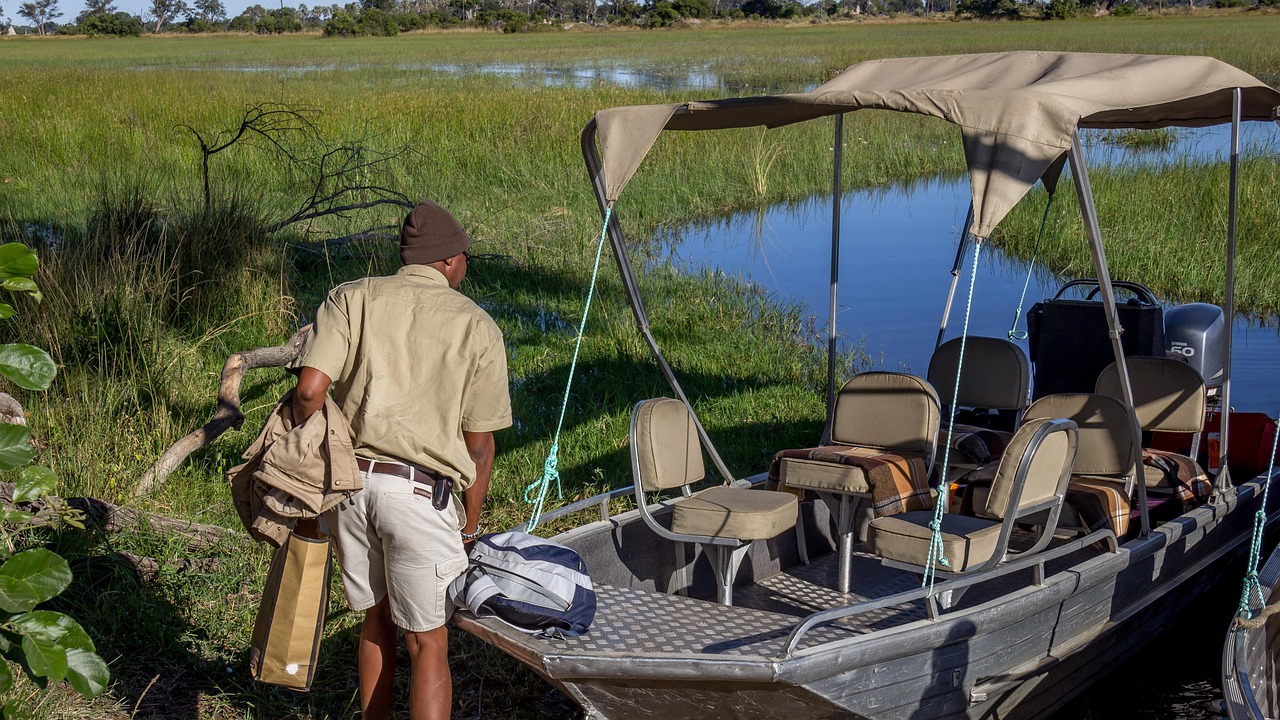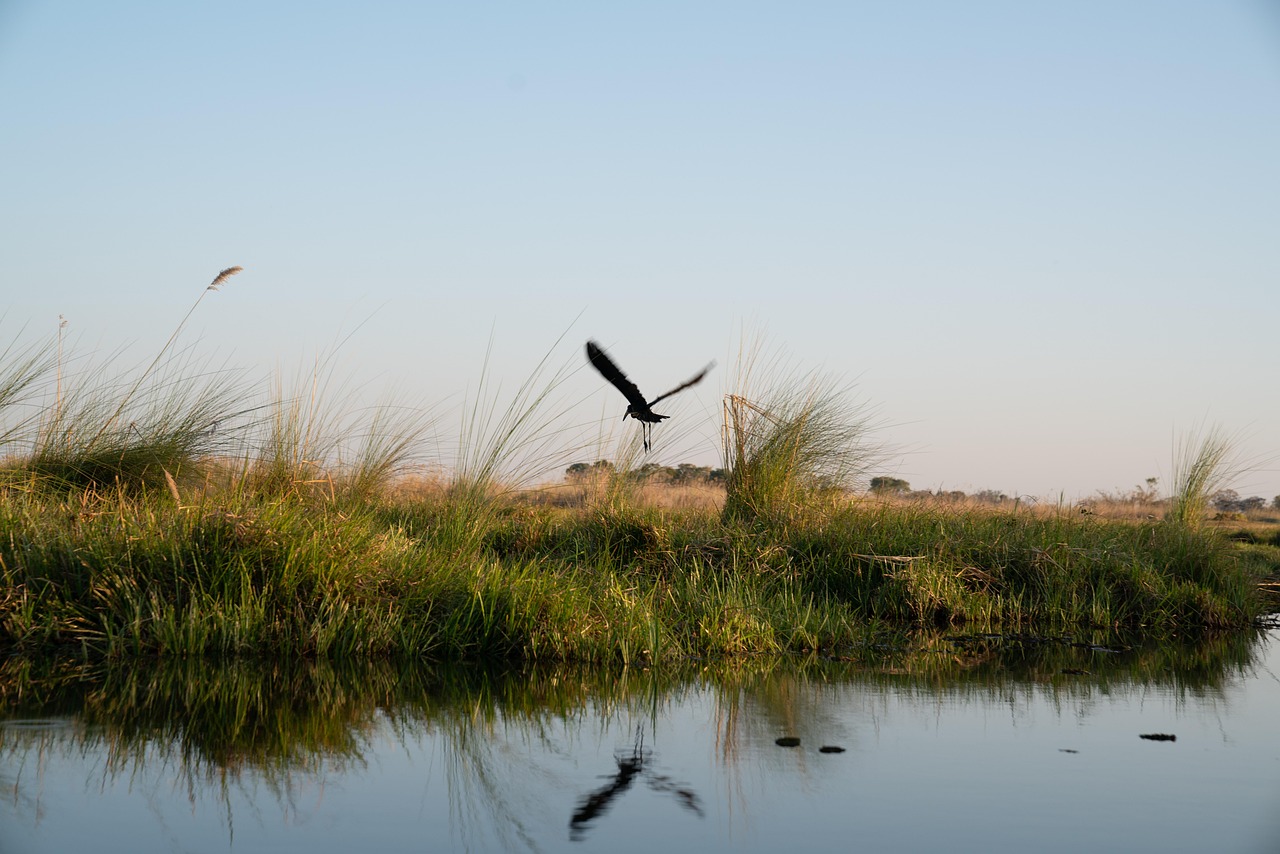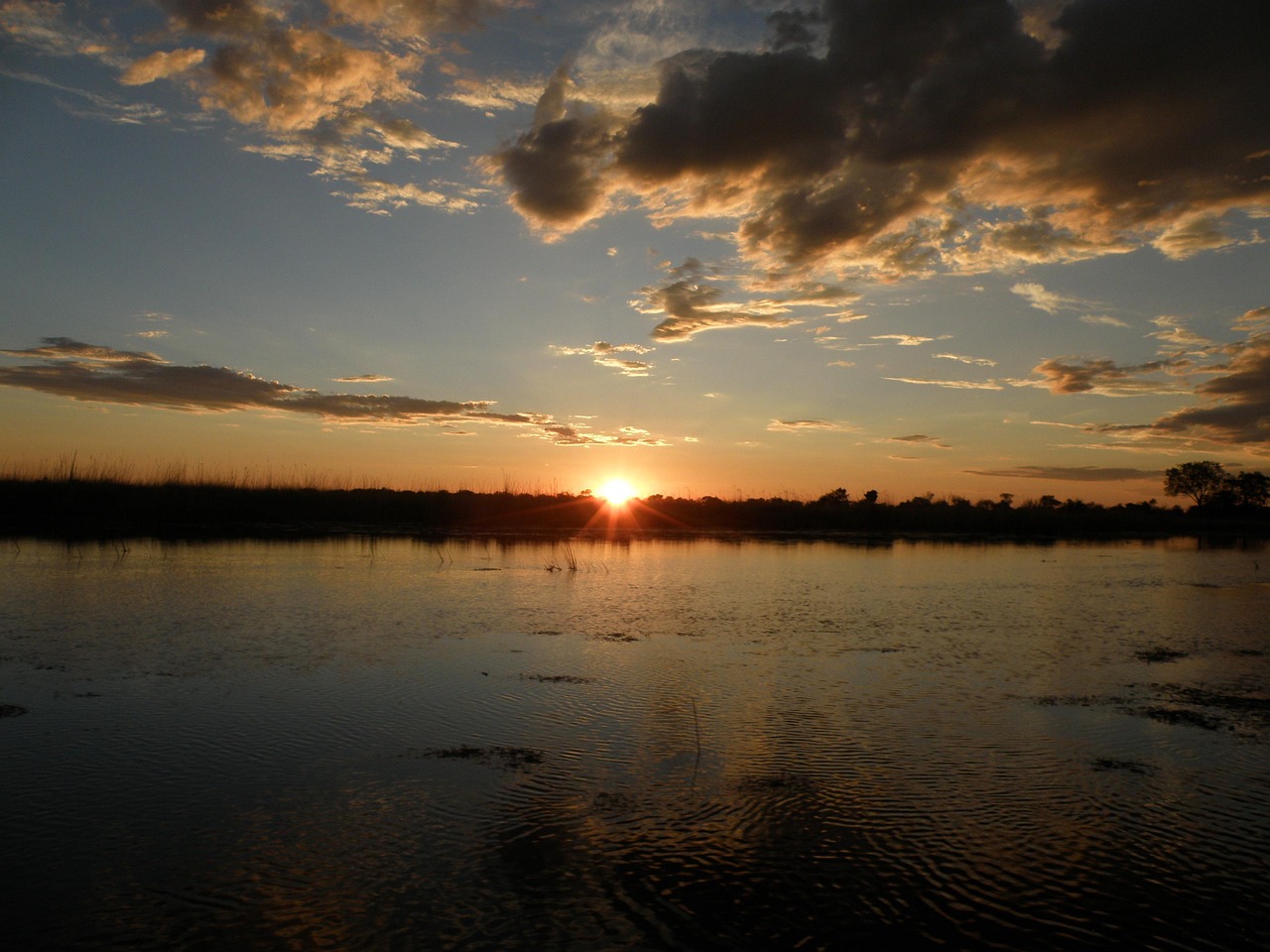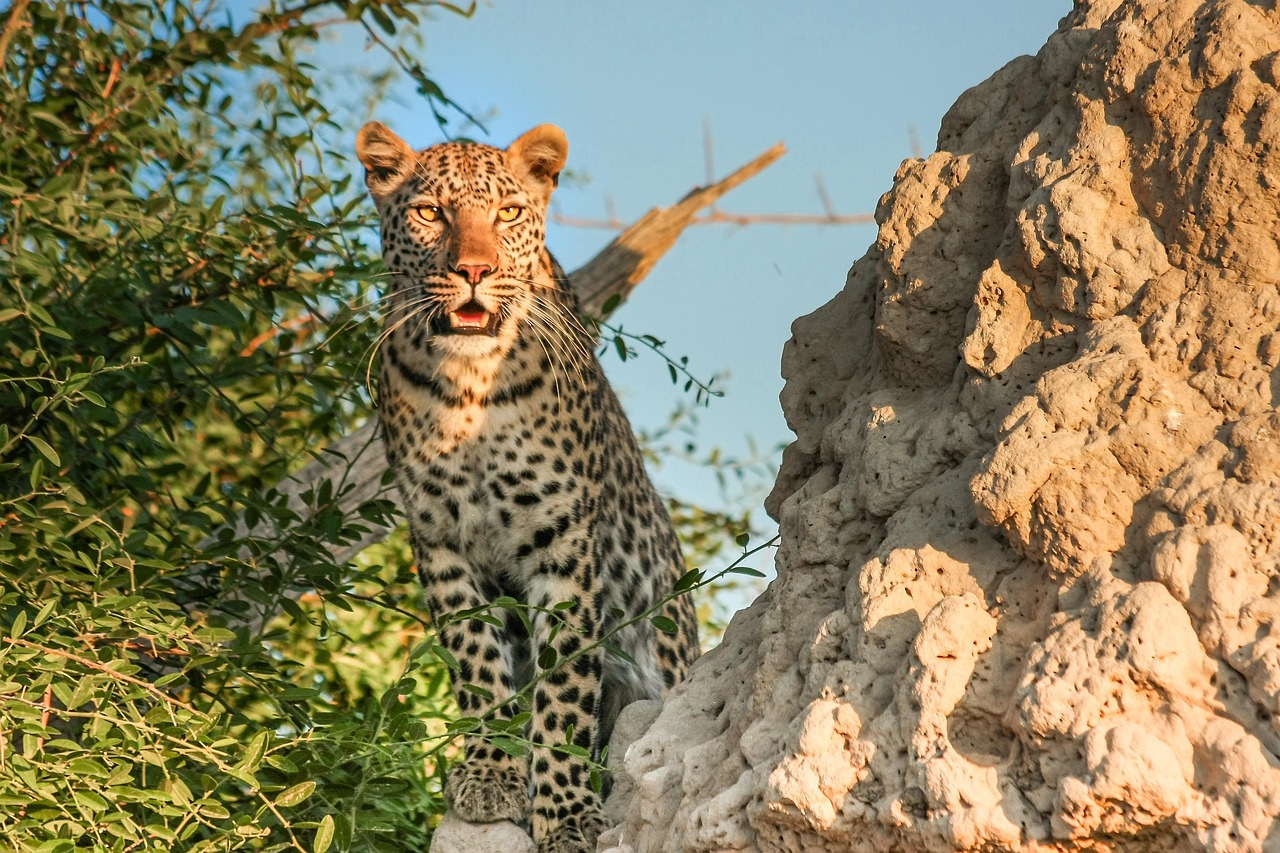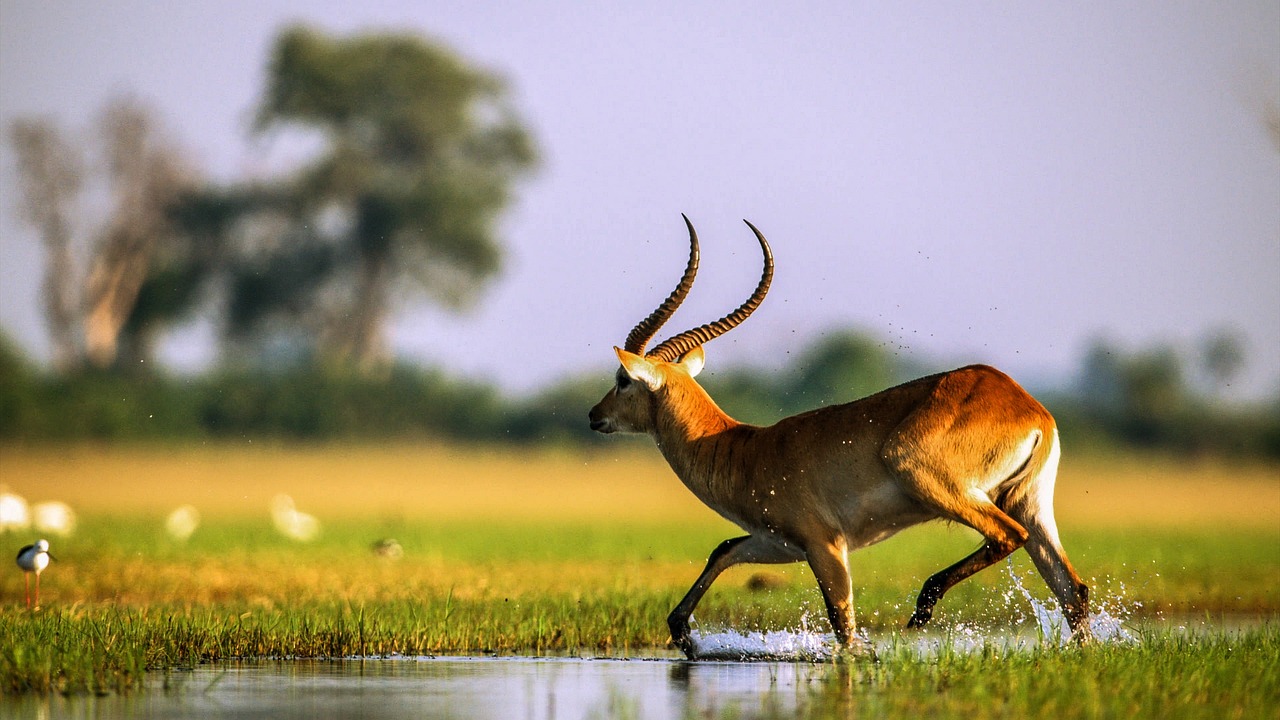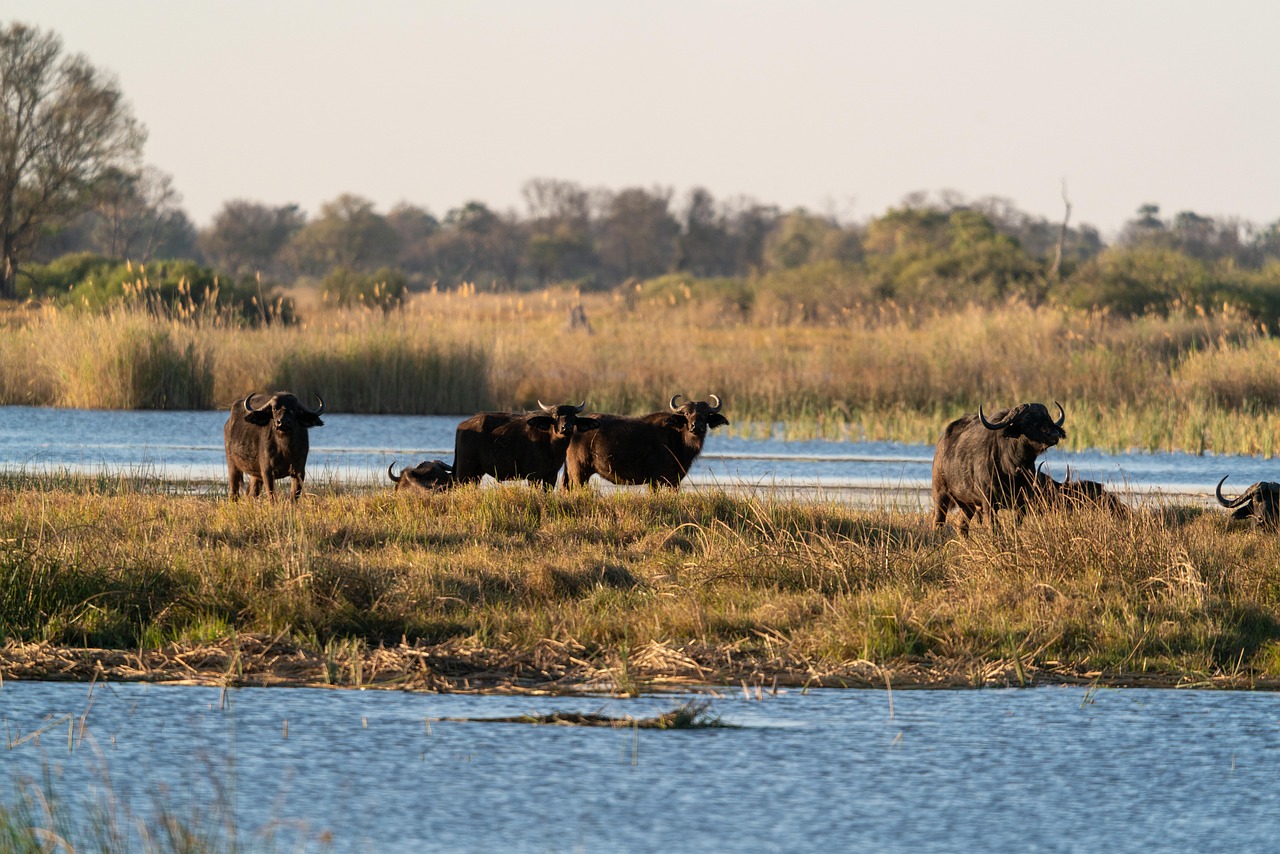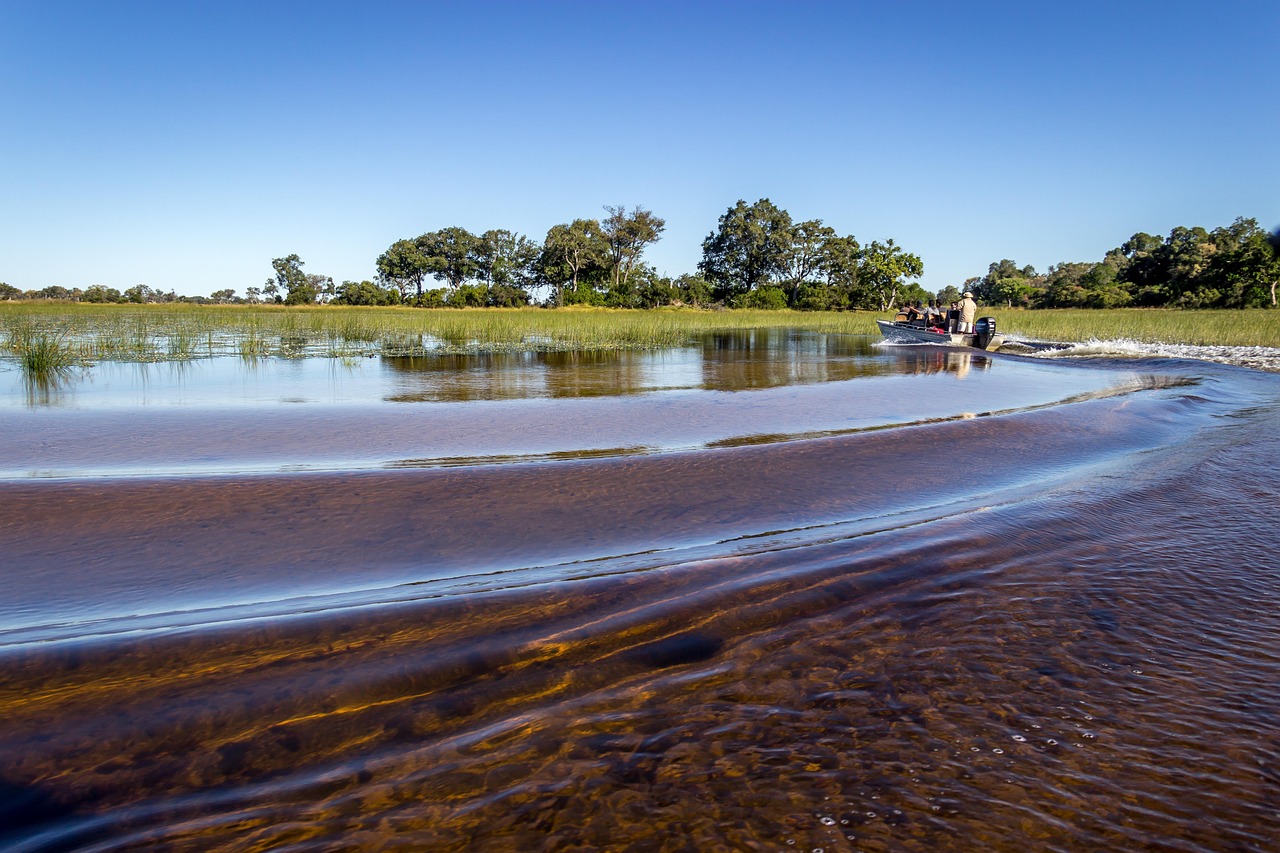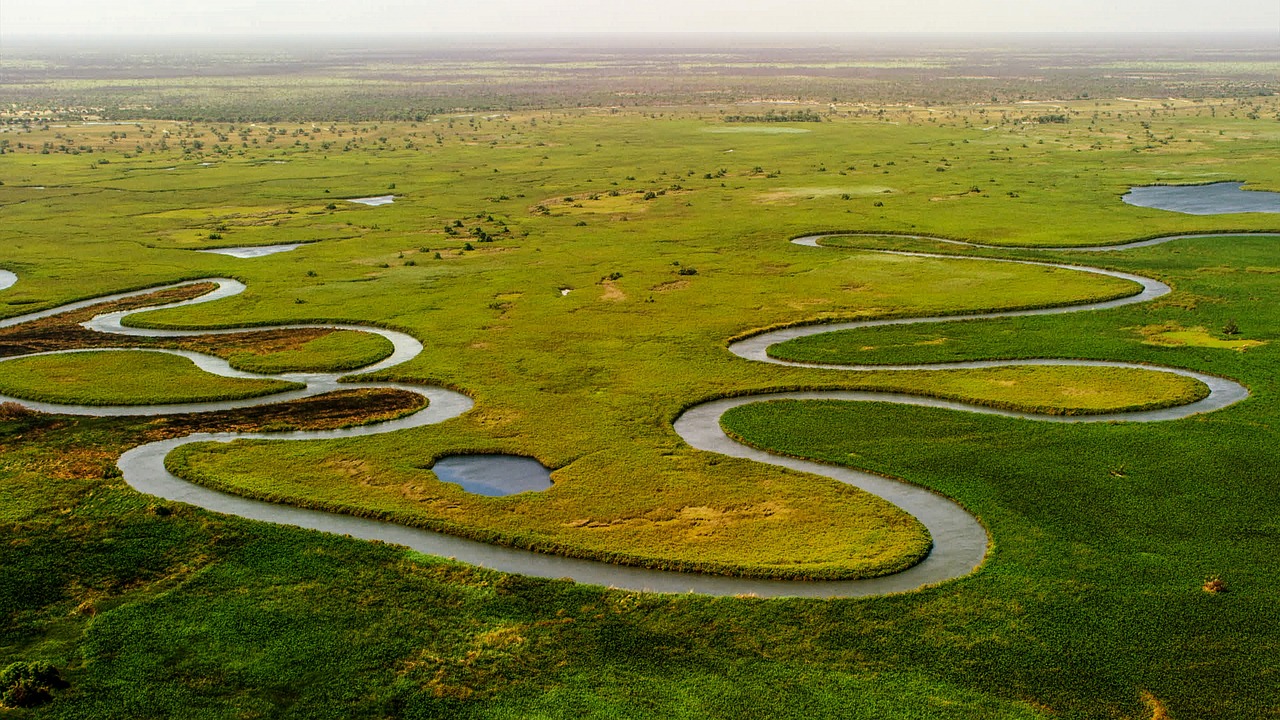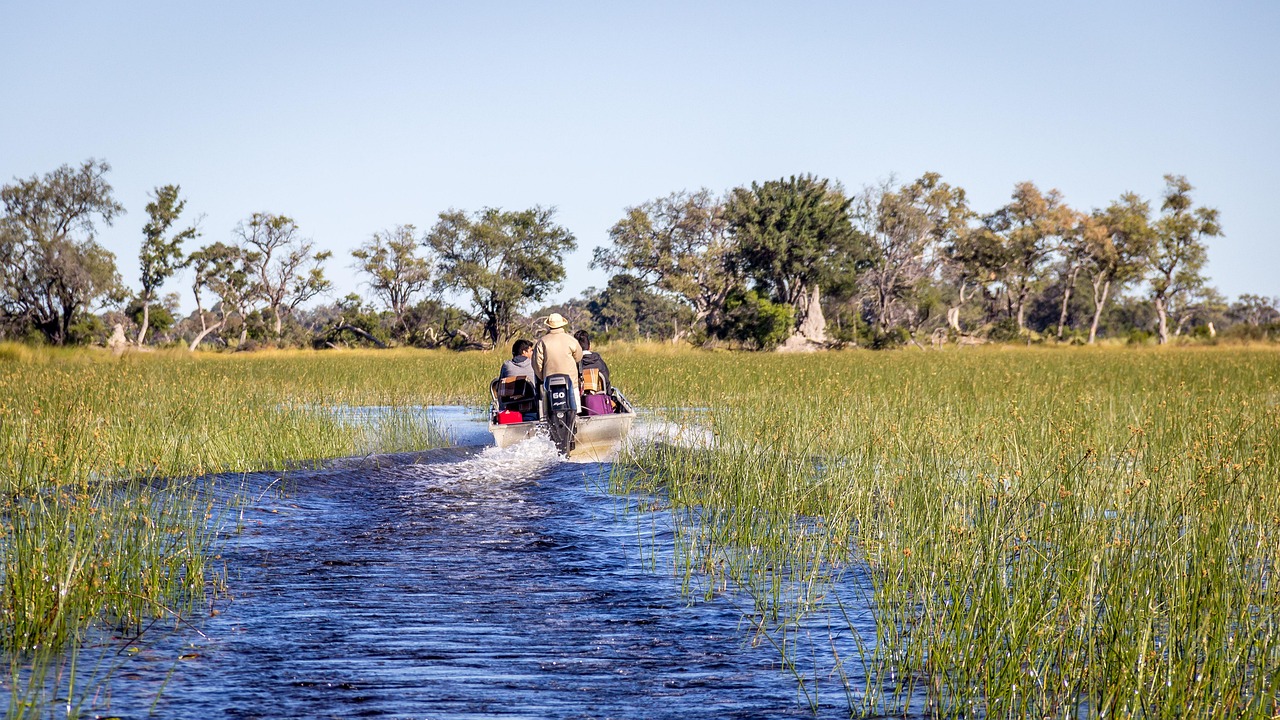
Botswana
Everything you need to know about going to Botswana for a safari. A complete travel guide.Botswana
Overview
A Complete Travel Guide To Botswana.
Everything you need to know about Botswana before visiting for a safari.
Botswana is a premier safari destination in southern Africa, celebrated for its expansive wilderness, low-impact tourism model, and high-value wildlife experiences. Nearly one-third of the country is protected, offering unparalleled access to diverse landscapes—from the waterways of the Okavango Delta, to the elephant-rich Chobe National Park, and the stark beauty of the Kalahari Desert.
Visitors can enjoy game drives, guided walks, mokoro (dug-out canoe) excursions, and seasonal helicopter and cycling safaris that showcase rare wildlife behaviours in remote settings.
Strong conservation policies, community benefits, and a focus on quality over quantity make safari travel here both ethical and immersive.
Explore Botswana Below:
Safety
Everything you need to know about safety in Botswana
Botswana is considered one of the safer safari destinations in Africa. In cities like Gaborone, Francistown and Maun, petty crime such as pickpocketing and vehicle theft can occur, but violent incidents targeting tourists are rare. Wildlife areas are managed with strict safety protocols—please stay with your guide, remain in your vehicle, and follow instructions at all times.
Expert tip: Always secure valuables in your lodge safe and use reputable taxis or guided transfers after dark.
A Deeper Understanding Of Safety In Botswana
Botswana benefits from political stability and a well‑developed tourism infrastructure. In urban areas, take standard precautions: keep doors locked, avoid isolated or dimly lit areas, don’t carry ample cash or flashy valuables, and use taxis after sunset. In wilderness zones, the main risks come from wildlife and remote conditions. Always stay seated during game drives unless instructed otherwise, never walk unaccompanied at night, and keep a safe distance—at least 20 m—from large mammals. Guide‑led briefings ensure you understand how to avoid dangerous encounters, from hippos near water to elephants on camp perimeters. Road conditions can be challenging—avoid night‑time driving and carry emergency fuel and supplies when self‑driving. By following common-sense precautions, trusting experienced guides, and respecting the space of animals, you can feel confident that safety remains a central feature of your Botswana experience.
Wildlife
Everything you need to know about wildlife in Botswana
Botswana is home to iconic mammals like elephant, lion, leopard, wild dog and hippo, offering consistently rich wildlife encounters year-round. Dry-season game views are exceptional, but the green season brings baby animals and active predator hunts.
- Best months for wildlife viewing in Botswana: May to October
Expert tip: Rise early for the peak activity window between 05:00–10:00, when elusive predators like leopard and wild dog are most active.
Explore wildlife in Botswana:
A Deeper Understanding Of Wildlife In Botswana
Botswana’s diverse ecosystems—from water-filled delta to open Kalahari plains—support robust predator‑prey dynamics. The dry season concentrates animals around water bodies, making April to October ideal for spotting elephant herds, lion prides, and buffalo gatherings. The green season (November–March), though wetter, offers memorable sightings of wild dog packs hunting, zebra and wildebeest calves, and active cheetahs in the Central Kalahari. Rhinos remain rare but are increasingly spotted in private concessions. Remoteness and ethical tourism practices further enhance the feeling of intimate encounters with nature.
Table showing wildlife occurrence in Botswana.
🔵 Plentiful 🟢 Common 🟡 Uncommon 🔴 Sporadic ⚫ Non‑occurring
| Species | Frequency |
|---|---|
| Lion | 🔵 |
| Leopard | 🟢 |
| Cheetah | 🟢 |
| Spotted Hyena | 🟢 |
| Brown Hyena | 🟡 |
| Striped Hyena | ⚫ |
| Black‑backed Jackal | 🟢 |
| Side‑striped Jackal | 🟡 |
| Caracal | 🟡 |
| Serval | 🟡 |
| African Wild Cat | 🟡 |
| African Wild Dog | 🟢 |
| Aardwolf | 🟡 |
| White Rhino | 🟡 |
| Black Rhino | 🔴 |
| Elephant | 🔵 |
| Buffalo | 🔵 |
| Giraffe | 🔵 |
| Hippo | 🔵 |
| Zebra | 🔵 |
| Blue Wildebeest | 🟢 |
| Black Wildebeest | ⚫ |
| Sable | 🟡 |
| Roan | 🟡 |
| Eland | 🟢 |
| Oryx | 🟡 |
| Kudu | 🟢 |
| Waterbuck | 🟢 |
| Lechwe | 🟡 |
| Sitatunga | 🟡 |
| Aardvark | 🔴 |
| Pangolin | 🔴 |
| Mountain Gorilla | ⚫ |
| Chimpanzee | ⚫ |
Where To Go
Everything you need to know about parks and reserves in Botswana
Botswana’s safari landscape encompasses structured national parks, community-run wildlife areas, and private concessions that offer exclusive access. Travellers can expect off-road game drives, night safaris, and flexible, low-density experiences in private areas. At the same time, parks provide broader access and affordability.
Best Parks, Reserves and Concessions in Botswana:
- 🥇 Chobe National Park
- 🥈 Khwai Community Concession
- 🥉 Kwara Concession
Expert tip: Lodges inside private and community concessions offer night drives, walking safaris, and fewer vehicles per sighting than national parks—check your lodge’s location before booking:
Explore Botswana Parks, Reserves and Concessions Below:
Regions
Everything you need to know about safari regions in Botswana
Botswana is divided into distinct safari regions, each offering a unique blend of landscapes, wildlife, and experiences. Understanding regions rather than individual parks helps you choose between exclusive private concessions, off‑road game drives, luxury lodges and structured national park visits.
Best regions in Botswana:
- 🥇 Okavango Delta Region
- 🥈 Chobe Safari Region
Expert tip: Choose lodges within private or community concessions in these regions—access to walking safaris and night drives depends on region zoning:
Explore Botswana safari regions below:
Pros & Cons
The pros and cons of a safari to Botswana
| Pros | Cons |
|---|---|
| ✅ Exceptional wildlife diversity: High densities of elephants, predators, and delta-adapted species offer memorable sightings. | ⭕ High cost: Botswana’s low-impact model leads to luxury pricing that may exceed mid-range safari budgets. |
| ✅ Low-tourist density: Small groups, fewer vehicles, and exclusive ecosystems ensure a private, immersive experience. | ⭕ Limited affordable mid-range options: Quality but less luxurious camps are harder to find. African SafariSafari Bookings+15Kafunta Safaris+15Ella McKendrick+15 |
| ✅ Unique water-based safaris: Mokoro, boat trips, and helicopter flights in the Okavango create unmatched safari variety. | ⭕ Challenging access: Many regions require charter flights or long road transfers. adventureoutloud.com.auAfrican Safari |
| ✅ Ethical, conservation-led tourism: National policies focus on sustainability and supporting local communities. | ⭕ Seasonal travel constraints: Wet season travel may limit access to remote camps and disrupt itineraries. adventureoutloud.com.au |
| ✅ Stable, secure environment: Botswana is politically stable and safe, enhancing peace-of-mind for travellers. | ⭕ Smaller wildlife herds in some regions: Compared to East Africa, Botswana’s plains feature more scattered game. Almost Never Cleveradventureoutloud.com.au |
| ✅ High-end lodges & experiences: Top-tier camps offer luxury with wilderness immersion. | |
| ✅ Photographer’s paradise: Combination of lighting, landscape, and animal proximity is ideal for safari photography. |
Expert tip: Plan your stay in both a national park and a private or community concession to enjoy the benefits of scenic diversity, exclusive experiences, and flexible game-viewing options.
Explore other countries:
Continue your safari planning journey across Africa’s top countries
Not sure if Botswana is your perfect fit? Click below to explore and compare other safari countries.
VISA
Everything you need to know about visas for travel to Botswana
Most travellers do not need a visa for stays of up to 90 days. A valid passport, with at least six months remaining and with a few blank pages, is required. Visa-free access is available to many nationalities, while others require an advance application.
Use the following links to see your visa requirements when travelling to Botswana:
Expert tip: Apply early if your country requires a visa and confirm whether you need a single‑entry or multiple‑entry permit:
A Deeper Understanding Of Visa Requirements For Botswana
Botswana offers visa-free or visa-on-arrival entry for citizens of many countries—mainly Commonwealth and European nations—for stays typically of up to 90 days. Nationals from countries such as Bangladesh, India, Nigeria, and Pakistan must apply in advance, either through an e-visa system or at a Botswana embassy or consulate. All visitors must hold a valid passport that is also valid for at least six months and has at least three blank pages. The e-visa process requires submitting Form 1, a copy of your passport, photos, travel itinerary, proof of accommodation, and an invitation or cover letter, where relevant. Processing usually takes 7–21 working days. Fees range from BWP 300 (~US$30) for a single‑entry tourist visa to BWP 500 for multiple entries. Fingerprints are taken on arrival. Suppose you plan cross‑border travel within the KAZA region. In that case, a visa may simplify movement between Botswana, Zimbabwe, Zambia, Namibia, and Angola.
Vaccinations
Vaccinations are needed to visit Botswana.
No vaccinations are legally required for entry unless you arrive from a yellow‑fever endemic country. Routine immunisations should be up to date, and certain vaccines are strongly recommended for travel health.
- Vaccinations Required: yellow fever (only if arriving from affected countries)
- Use the following link to find vaccination information for Botswana: https://skyteam.traveldoc.aero/
Expert tip: Book a travel health appointment 6–8 weeks before departure to complete vaccine schedules and discuss seasonal malaria precautions:
A Deeper Understanding Of Vaccination Requirements for Botswana
Most travellers to Botswana require only proof of a yellow fever vaccination if arriving from a risk country; otherwise, no other shots are mandatory. However, health experts recommend staying current with routine vaccines (MMR, Tdap, polio, influenza) and consider hepatitis A and B, typhoid, and rabies for more extended stays or remote travel. Yellow fever transit rules apply even during layovers in endemic regions. Malaria protection is advised during the wet season (November–June) in the northern, northeastern, and Okavango regions—use bite prevention and antimalarials like atovaquone-proguanil or doxycycline. Risk varies by region and time of year, so consult a travel clinic early to tailor your health plan and ensure you are fully immunised before travel.
Weather and climate
Everything you need to know about weather and climate in Botswana
Botswana has a semi-arid climate, characterised by a cool, dry winter (May–August) and a hot, wet summer (November–March). Expect warm days, cold nights, and a sharp shift between dry and rainy seasons.
Seasonal Breakdown:
- Summer: The wet season, from November to March, brings afternoon showers and high humidity, with average lows of 19°C (66°F) and highs of 32°C (90°F), accompanied by 70–80 mm (2.8–3.1 in) of rain.
- Winter: April to October is mostly dry and sunny, with cool mornings near 5°C (41°F) rising to 26°C (79°F) by afternoon; rainfall averages below 10mm (0.4″) per month.
Expert tip: Pack warm layers for early‑morning drives in winter and a light rain jacket for summer safari outings:
A Deeper Understanding Of Weather And Climate In Botswana
Botswana experiences a distinct dry season (April–October) when humidity falls, skies clear, and wildlife gathers at waterholes—making it peak safari time. Nights are cold, particularly from June to July, with lows of 5–7°C (41–45°F); daytime highs range from 22–28°C (72–82°F).
The wet season (November–March) is marked by short afternoon storms, lush landscapes, and higher insect activity. Daytime temperatures reach 30–34 °C (86–93 °F), while nights stay mild at 18–20 °C (64–68 °F). Travel during this time suits birders, photographers, and those seeking newborn wildlife, but roads may be challenging after heavy rains.
Northern areas, such as the Okavango Delta, may remain slightly cooler and wetter than the arid Kalahari in the south and west. April and May offer a transitional window—green plains, mild temperatures, and fewer tourists. September–October bring escalating heat and thick dust—but clear skies and photogenic sunrises. Choose your timing based on preferred weather, crowd levels, and wildlife experiences.
Table representing weather and climate in Botswana by month
🟢 Excellent weather | 🟡 Fair weather | 🟠 Hot or rainy conditions | 🔴 Unfavourable travel period
| Month | Avg Low (C/F) | Avg High (C/F) | Precipitation % | Rainfall (mm/in) | Rainy Days | Humidity % | UV Index |
|---|---|---|---|---|---|---|---|
| January | 19 / 66 | 32 / 90 | 🟠 41 % | 76 / 3.0 | 11 | 70 | 12 |
| February | 19 / 66 | 32 / 90 | 🟠 38 % | 73 / 2.9 | 9 | 68 | 12 |
| March | 18 / 64 | 31 / 88 | 🟠 30 % | 59 / 2.3 | 8 | 60 | 11 |
| April | 14 / 57 | 27 / 81 | 🟡 10 % | 27 / 1.1 | 4 | 40 | 10 |
| May | 9 / 48 | 25 / 77 | 🟢 5 % | 10 / 0.4 | 1 | 30 | 9 |
| June | 6 / 43 | 22 / 72 | 🟢 3 % | 5 / 0.2 | 1 | 25 | 9 |
| July | 5 / 41 | 22 / 72 | 🟢 1 % | 4 / 0.2 | 0 | 20 | 9 |
| August | 8 / 46 | 25 / 77 | 🟢 4 % | 2 / 0.1 | 1 | 25 | 10 |
| September | 13 / 55 | 29 / 84 | 🟡 16 % | 9 / 0.4 | 2 | 40 | 11 |
| October | 17 / 63 | 31 / 88 | 🟡 21 % | 32 / 1.3 | 5 | 55 | 12 |
| November | 19 / 66 | 32 / 90 | 🟠 30 % | 60 / 2.4 | 9 | 65 | 12 |
| December | 20 / 68 | 32 / 90 | 🟠 38 % | 70 / 2.8 | 12 | 70 | 12 |
Getting Here
Everything you need to know about getting to Botswana:
Botswana is accessible via several entry points, with both international and regional airports. Most travellers fly into Gaborone, Maun, or Kasane; charter flights or road transfers follow to safari lodges.
- Main point of entry to Botswana: Sir Seretse Khama International Airport (Gaborone) and regional airports (Maun, Kasane)
- Effort to get to Botswana: 🟡 Medium
- Effort getting around Botswana: 🟡 Medium
- Best ways to get around Botswana: ✈️ Air; 🚙 Transfers; 🚗 Self Drive
Expert tip: Schedule your charter or scheduled flight to arrive mid-morning—it allows time for luggage handling, charter transfers, and a relaxed first safari activity:
A Deeper Understanding Of Getting To Botswana
By Air
Most international flights route via Johannesburg or Cape Town before connecting to Botswana. Sir Seretse Khama International Airport (GBE) in Gaborone receives several flights a week from regional hubs. For safaris, travellers typically fly into Maun International Airport (MUB)—the gateway to the Okavango Delta—or Kasane International Airport (BBK) for Chobe and Victoria Falls. From these regional airports, chartered light aircraft (Mack Air, Wilderness Air) transport guests to remote airstrips serving lodges.
By Road
Botswana’s road network includes paved highways, such as the A1 (connecting Francistown and Gaborone) and A3 (linking Gaborone and Maun). Self-driving is viable with a proper 4×4—road conditions vary, especially after rain. Main entry via Botswana from South Africa, Namibia, Zambia, or Zimbabwe is straightforward. However, remote roads may require experienced drivers and extra preparation.
Transfers and Accessibility
After arrival at Gaborone or regional airports, most lodges offer private or shared road transfers. Safari packages often include airport pickups and inter-lodge charter flights. In areas like the Okavango, transfers by boat (mokoro) or small aircraft are shared. For self-driving, main roads are generally reliable, but accessing remote bush areas requires careful planning. Always factor in luggage restrictions on charter flights—typically 20 kg of soft bags only.
When To Go
Everything you need to know about the best time to visit Botswana:
The optimal time for a Botswana safari is from May to October. This dry, cooler season offers excellent game viewing, moderate temperatures, and minimal rain. At the same time, the off-peak wet months have lush landscapes and fewer crowds.
- High season: May to October
- Low season: November to March
Expert tip: Book in May or September to balance peak wildlife sightings with shoulder-season value:
A Deeper Understanding Of The Best Time To Visit Botswana
Botswana’s dry season (May–October) is the Safari's prime time—vegetation is sparse, wildlife gathers at waterholes, and malaria risk is lower. From June to August, cooler mornings and ideal game-spotting conditions prevail. September–October can bring rising temperatures and dust, yet sightings remain superb.
The wet ‘Green Season’ (November–March) transforms the country into lush greenery with newborn animals and migrant birds. It offers quieter camps and lower rates, but occasional heavy rains may impede road travel, and wildlife is more dispersed. Areas like the Kalahari and northern Okavango remain rewarding even during this period.
Shoulder months April and late November provide a good balance—fewer tourists, green landscapes, and still strong wildlife opportunities.
Table representing the best time to visit Botswana:
| Month | Weather | Wildlife Viewing | Birdwatching | Temperature |
|---|---|---|---|---|
| January | 🌧️ | ✅ | 🐦🐦🐦 | 🔥 |
| February | 🌧️ | ✅ | 🐦🐦🐦 | 🔥 |
| March | 🌧️ | ✅ | 🐦🐦🐦 | 🔥 |
| April | 🌤️ | ✅✅ | 🐦🐦 | ☀️ |
| May | ☀️ | ✅✅✅ | 🐦🐦 | ☀️ |
| June | ☀️ | ✅✅✅ | 🐦 | ☀️ |
| July | ☀️ | ✅✅✅ | 🐦 | ☀️ |
| August | ☀️ | ✅✅✅ | 🐦 | ☀️ |
| September | ☀️ | ✅✅✅ | 🐦 | 🔥 |
| October | 🌤️ | ✅✅ | 🐦 | 🔥 |
| November | 🌤️ | ✅✅ | 🐦🐦 | ☀️ |
| December | 🌧️ | ✅ | 🐦🐦🐦 | 🔥 |
Table Legend:
Table Legend:
Weather: ⛈️ Thunderstorms, 🌧️ Rain, 🌤️ Partly Cloudy, ☀️ Dry
Wildlife Viewing: ✅ Average, ✅✅ Good, ✅✅✅ Great
Birdwatching: 🐦 Average, 🐦🐦 Good, 🐦🐦🐦 Great
Temperature: ❄️ Cold, ☀️ Warm, 🔥 Hot
Why Visit
This is why you should visit Botswana:
Botswana offers ethical, high-quality safaris in vast, varied wilderness—from the Okavango Delta’s waterways to Chobe’s elephant herds and the Kalahari Desert. Fewer crowds, community‑led reserves, and seasonal wildlife encounters make it ideal for discerning travellers.
Expert tip: Choose lodges in both Okavango and Chobe to experience both water- and land-based safaris in one trip:
A Deeper Understanding Of Why You Should Visit Botswana
Botswana’s well‑managed tourism focuses on small groups, low‑impact camps, and remote settings, making wildlife encounters feel intimate. It blends luxury with raw wilderness, and its stable democracy underpins a safe and conservation-rich experience. From first‑time safari goers to seasoned explorers, the diversity of habitats—including floodplains, desert sands, and riverine forests—ensures something unique around every corner.
Elephant Capital
Botswana hosts more elephants than any other country, with Chobe National Park home to staggering elephant herds that visit the riverbanks—a rare spectacle of scale, movement, and interaction.
Okavango Water Safari
The Okavango Delta offers an unmatched combination of mokoro (canoe) journeys, boat trips, and walking safaris among islands and lagoons—making this inland delta truly unique to Botswana.
Wild Desert Wilderness
The Central Kalahari and Kgalagadi regions are vast, arid landscapes with solitary wildlife sightings, starlit nights, and the thrill of tracking cheetahs, wild dogs, and meerkats in open terrain untouched by mass tourism.
Activities
Everything you need to know about safari activities in Botswana:
Botswana delivers a diverse blend of safari experiences. From classic game drives across open plains to immersive walking safaris in private concessions, serene boat trips and traditional mokoro canoe excursions in the Okavango, plus night drives, wildlife photography safaris, and cultural village visits.
Expert tip: Combine water- and land-based safaris—like mokoro in the Delta and night drives in the Kalahari—to experience the full breadth of Botswana’s wildlife habitats.
Explore activities available in Botswana:
Birds
Everything you need to know about birdlife in Botswana
Botswana is a prime destination for birdwatchers, featuring waterbirds, raptors, and iconic species like wattled cranes and Pel’s fishing owl. The green season (November–April) offers peak activity with resident and migratory birds in vibrant breeding plumage.
- Birds in Botswana: African fish eagle, Pel’s fishing owl, wattled crane, kori bustard, carmine bee-eater, three-banded plover, black-collared barbet
- Best months for birding: November to April (green season), with migrants arriving from October through March
Expert tip: Early-morning mokoro or boat rides offer the best light and closest wildlife encounters—opt for trips during water-level peaks.
Explore birds in Botswana:


